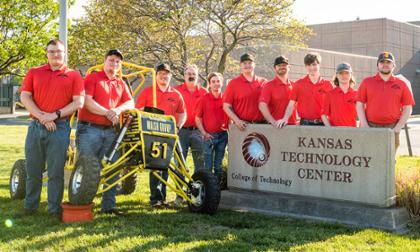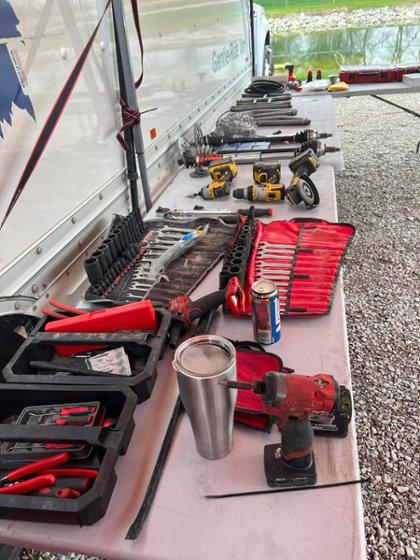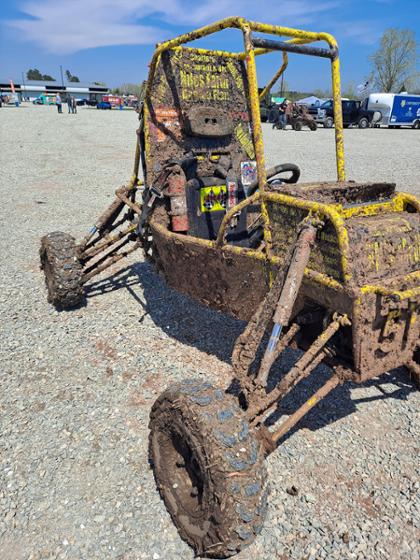“Some schools that compete are huge – they have six figure budgets, and they can buy all titanium hardware. There are some things we just can’t do. But what we can do is learn to do it all. Everything. On a team of 30 or 40 at a larger school, each student might just do one tiny part. Here, we become so well versed in all aspects,” said Kylan Dixon, captain of the Pitt State Baja Team.
Dixon will graduate on Friday with degrees in mechanical engineering technology and automotive technology and believes the Baja experience was an invaluable part of his education.
“I want to see the problems, I want to fix the problems, I want to see the quality improve and be as efficient as possible, so doing a project like this was huge in terms of preparing me for that in my career,” he said.
Zachery Ritter, also a mechanical engineering major and Pitt State Baja team member who will graduate on Saturday, agrees.
“You have to learn to be a jack of all trades. It’s great for our resumés, it’s great to connect with alumni or those who did Baja for other teams,” Ritter said.
This year, with the guidance of advisor Trent Lindbloom, they set about to build not just a Baja car, but to rebuild the Pitt State Baja Team that lost momentum during the pandemic.
The two said the process began last semester creating designs in software that would lead to a complete 3D race-ready model.
“We built it from the ground up and did an analysis of suspension, speed, and weight,” Dixon said.
Eight other team members — all automotive majors — helped in some way, each contributing their skill sets.

They were responsible for fundraising to cover the $24,000 price tag for materials, parts, and travel to the national Baja race, which this year was in Oshkosh, Wisconsin.
“We had to get in touch with sponsors both local and non-local, send letters, visit in person, show them our design, and reach out to alumni, family, and friends,” Ritter said.
They were responsible for overseeing the budget, managing their time, and making presentations at various stages in the process.
“If we learned anything from this whole project, it would be time management and being organized,” Dixon said.

By early May, the team had created a tool and part list of every single screw, bolt, and nut. They made everything universal in a Henry Ford-style production process: parts were interchangeable for speed and ease of repair during competition.
"We could grab it, fix it, and go,” Dixon said. “In an engineering and manufacturing setting, you do the same thing — and that's what we’re shooting for. Treating this as the real world.”
Last weekend at Oshkosh, they made it through the always difficult tech inspection and dynamic events but an obstacle gave them trouble in the endurance race. They finished 39th.

No matter, they said.
“The team learned a lot and it was a great showing of the first 4x4 car from Pitt State,” Dixon said. “Our team wants to build off of this in future years — to streamline the process, to build in efficiencies. And each step of the way, the team is learning.”
Next, they’ve set their sights on post-graduation plans: Dixon will begin work this summer at Hix, and Ritter will work for Agco in Hesston, Kansas.
“We’re glad we got our start here,” Dixon said. “I went to a lot of larger schools on tours and they showed me lecture halls. I came here and they showed me labs. All our teachers here have industry knowledge. They know who we are by name. And we’re leaving with this Baja experience, which is like nothing else. This Baja program is huge — in the engineering world, if you talk to one, they know about Baja.”
Learn more about mechanical engineering technology and automotive technology: